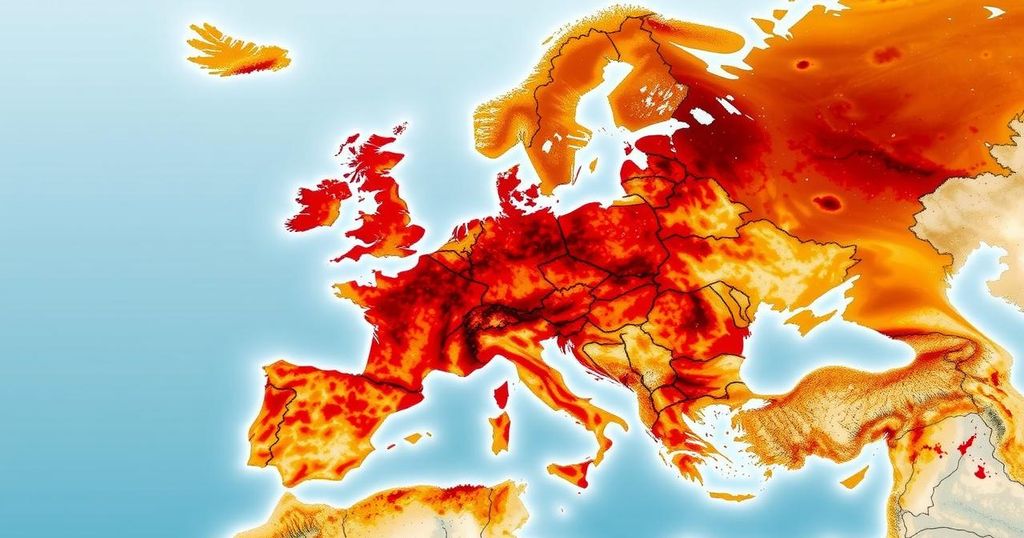European Union scientists project that 2024 will be the warmest year on record, with average temperatures surpassing 1.5°C above pre-industrial levels. This increase is linked to human-driven climate change, resulting in severe weather events worldwide. Despite global agreements to address climate impacts, many measures are deemed insufficient. Future temperature variations may occur, but long-term warming trends are expected to continue, leading to ongoing environmental and humanitarian challenges.
According to European Union scientists, this year is poised to be the warmest on record since comprehensive temperature data has been collected. They predict that exceptionally high temperatures will continue well into early 2025. Recent findings by the Copernicus Climate Change Service reveal that 2024 is the first year with average global temperatures exceeding 1.5 degrees Celsius above pre-industrial levels, a significant marker of climate change progression. The impact of these elevated temperatures has manifested through intense weather events globally, including droughts, floods, and heatwaves causing widespread human suffering.
Despite international efforts such as the recent $300 billion deal to combat climate change, many nations, particularly those with fewer resources, have criticized the measures as inadequate. Extreme weather events over the past year, ranging from severe droughts in South America and Italy to fatal floods in parts of Nepal and Europe, have underscored the dire consequences of climate change. These calamities have been attributed mainly to human-induced climate change, affirming scientific studies linking rising temperatures to increased disaster frequency.
While global temperatures have remained high, scientists anticipate that the emergence of a La Niña weather pattern might produce a brief cooling effect, yet this would not significantly alter the long-term warming trend. Experts suggest that, even with potential fluctuations in temperatures, the world will continue to face dangerous temperature extremes and associated natural disasters, emphasizing the urgent need for effective climate action and emission reductions.
The alarming forecast regarding this year’s temperatures originates from insights provided by the European Union’s Copernicus Climate Change Service (C3S). Their data indicates a clear upward trend in global warming, with 2024 expected to surpass previous records. This context is critical as it highlights the relationship between human activity—particularly carbon emissions from fossil fuels—and the compounding effects of climate change. The discussion around global warming extends to international climate agreements that seek to mitigate these changes, yet many argue these efforts are insufficient. Understanding the broader implications of these temperature increases includes recognizing the socio-economic impacts on vulnerable nations facing climate-related adversities. The scientific community continues to advocate for decisive action to curb emissions, with the acknowledgment that temporary reductions through natural phenomena like La Niña do not negate the underlying challenges posed by climate change.
In summary, 2024 is set to be recorded as the hottest year thus far, highlighting an alarming trend in global warming driven by human activities. The Copernicus Climate Change Service data indicates a significant rise in temperatures, projecting continued extreme weather events worldwide. Despite international commitments to tackle climate change, many solutions appear inadequate, particularly for poorer nations affected by climate disasters. As scientists monitor potential cooling events like La Niña, they stress that such changes will not fundamentally alter the persistent rise in global temperatures and the associated climate risks.
Original Source: sightmagazine.com.au







